The Video Games
Dragon Age: Origins (2009):
My first introduction to dark fantasy came through Dragon Age: Origins — a masterpiece of its time, drawing heavy inspiration from A Song of Ice and Fire and Tolkien’s legendarium. Back then, I had no idea what Game of Thrones even was — all I knew was that this world felt ancient, weighty, and real.
The premise alone was compelling: an ancient order, the Grey Wardens, tasked with stopping an apocalyptic Blight by any means necessary — even if it meant sacrificing themselves. The narrative gripped me from the start, not just for its stakes, but for its moral complexity.
Your choices mattered. Not just in a surface-level way, but in how you shaped relationships, alliances, and legacies. One of the most infamous decisions? Surviving the final battle by impregnating Morrigan to pass the Archdemon’s soul into her unborn child — a move that could be seen as manipulative, pragmatic, or even rooted in love, depending on your view.
Every character carried their own burdens. Sten, who had slaughtered a village, but found a path to redemption. Alistair, the reluctant heir torn between personal identity and political duty. Even the Chantry — with its religious doctrine and divine myths — added a layer of tension that blurred the line between truth and control.
Mages were imprisoned “for the greater good.” Elves were seen not as pure or sacred, but as lesser — a fallen people, beaten down and displaced.
Those ideas stuck with me. I still wrestle with them in my own writing — questions of power, prejudice, control, and survival.
Then came The Veilguard (2024)… and for many of us, the immersion snapped.
It didn’t just shift the tone — it fractured the foundation. Lore once treated with reverence now felt repackaged. Characters once shaped by trauma and conviction now seemed flattened, stylised, and market-tested. It lost the grit. The weight. The soul.
The Elder Scrolls:
Before I knew what worldbuilding even meant, The Elder Scrolls had already shown me.
From the fertile valleys of Cyrodiil to the bitter, wind-scoured peaks of Skyrim, these were landscapes that felt alive — not just in visuals, but in history. You didn’t just explore dungeons for loot. You explored ruins once shaped by entire civilisations. Every crumbling wall, buried scroll, or broken shrine hinted at something older, deeper, and often long forgotten.
The world was never static. In Oblivion (2006), you were at the heart of an Empire in decline — its golden age already behind it, holding on with ceremony and sword. By Skyrim (2011), you were walking through the aftermath — a realm fractured by civil war, prophecy, and the long shadow of the Dragonborn myth.
What made The Elder Scrolls so influential for me wasn’t just its lore, but the way that lore was embedded in architecture, cultures, and contradictions. Elves weren’t noble by default. Humans weren’t saviours by virtue. The Daedra weren’t evil — but they weren’t safe either. Morality bent to the will of power, belief, and history.
This was a world that didn’t ask you to save it. It asked you to choose who to stand with, and why. That legacy is deeply woven into the DNA of A Tale from the Unbound Realm — where ruins remember more than rulers, and history bleeds into every choice.
A Plague Tale:
The hero’s journey — not towards triumph, but toward the bitter defeat of legacy.
Amicia is reckless, misunderstood. Her purity is taken from her — not by choice, but by circumstance. She’s a girl forced into violence, into grief, into a world that never gave her the chance to remain innocent.
Requiem (2022) showed the toll of survival. Amicia moved through every stage of grief — bargaining, anger, defiance, acceptance — and still, it wasn’t enough.
She fought for her brother Hugo with everything she had… and still lost more than she ever could have imagined.
Her journey helped me process my own grief — especially after the passing of my grandfather.
Not because it offered comfort, but because it didn’t pretend everything could be fixed.
It reminded me of how love and loss live side by side — and how sometimes, carrying someone’s memory is all you can do.
The story isn’t without its faults — many side characters feel underdeveloped, and some lacked the screen time needed to truly connect.
The Macula curse, too, was never fully explained. In Innocence (2019), its mystery worked — grounded just enough in folklore and fear to keep you intrigued.
But by Requiem, the shift into full fantasy felt jarring — as if the story leapt ahead without earning the transition. Some of that original tension was lost in the spectacle.
But the emotional arc of the de Rune siblings?
That was a triumph.
Disclaimer:
All in-game imagery belongs to their respective copyright holders. This virtual photography is a fan-made creative work, captured in-game by Daniel Butler (Dabutlergames), and is not affiliated with or endorsed by the game developers or publishers. No monetisation is derived from these images — they are shared for educational and creative showcase purposes only.
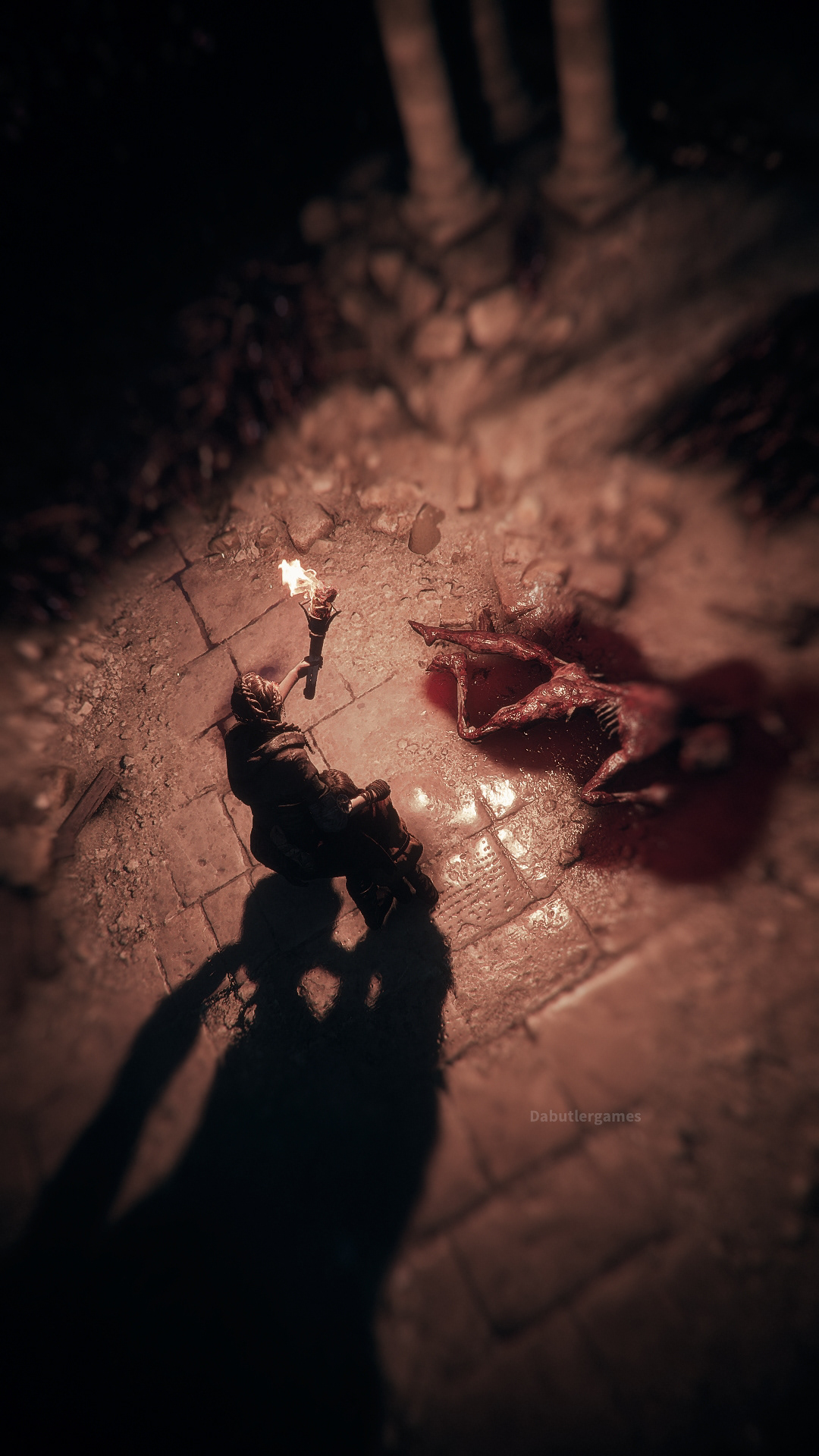
A Plague Tale: Innocence: 2019 (Asobo Studio / Focus Entertainment)
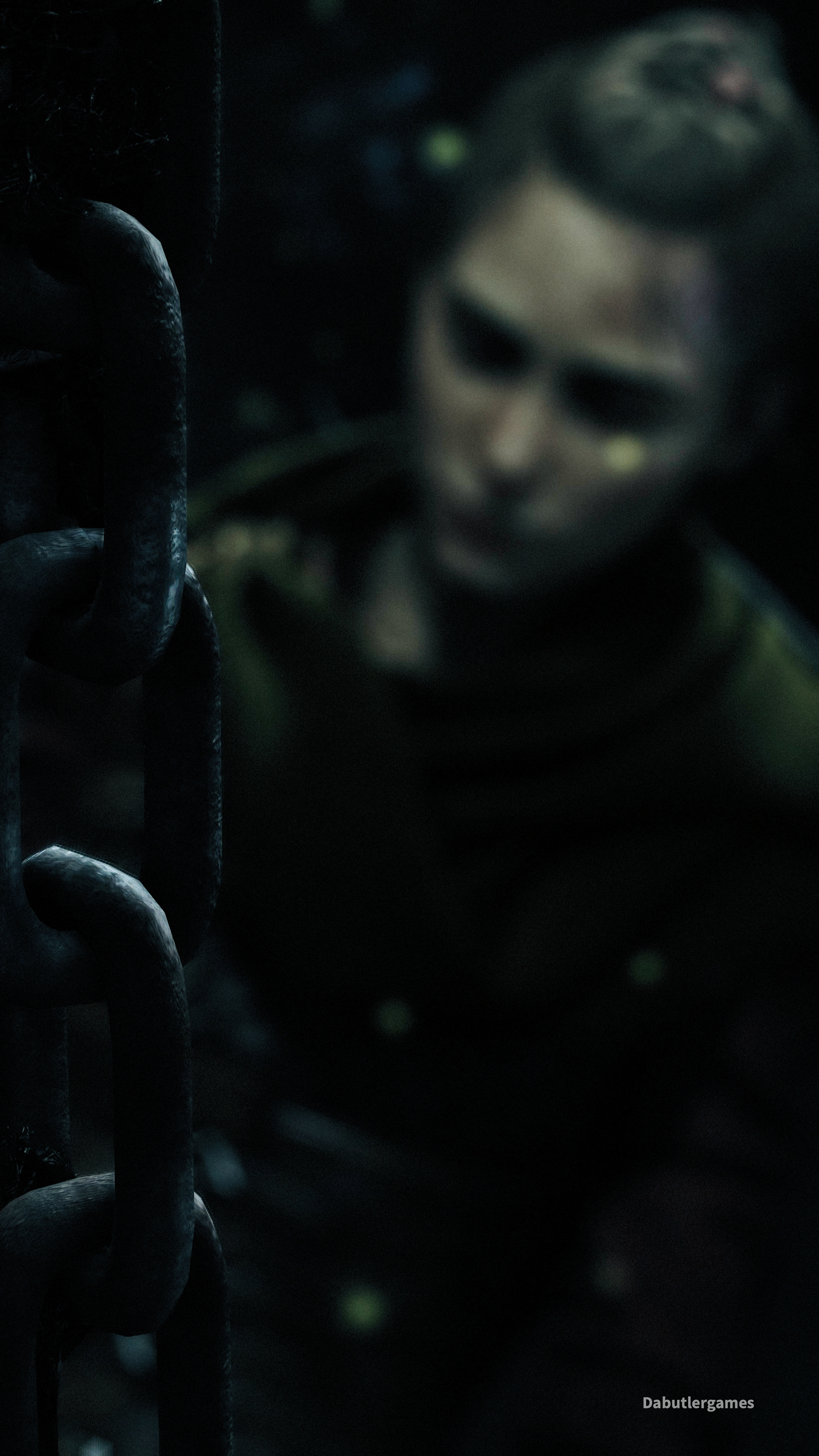
A Plague Tale: Requiem: 2022 (Asobo Studio / Focus Entertainment)
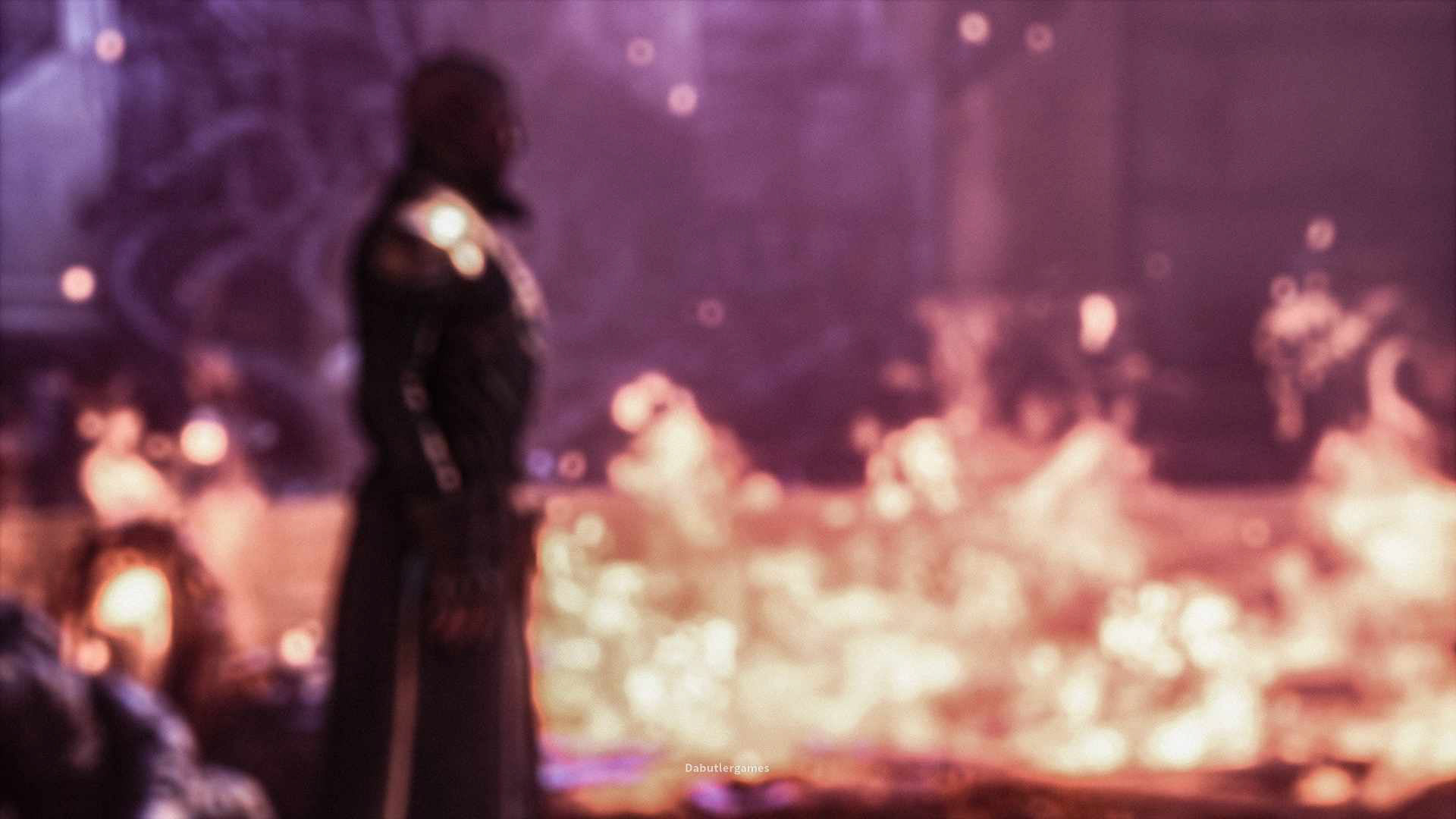
Dragon Age: The Veilguard (Bioware / EA)
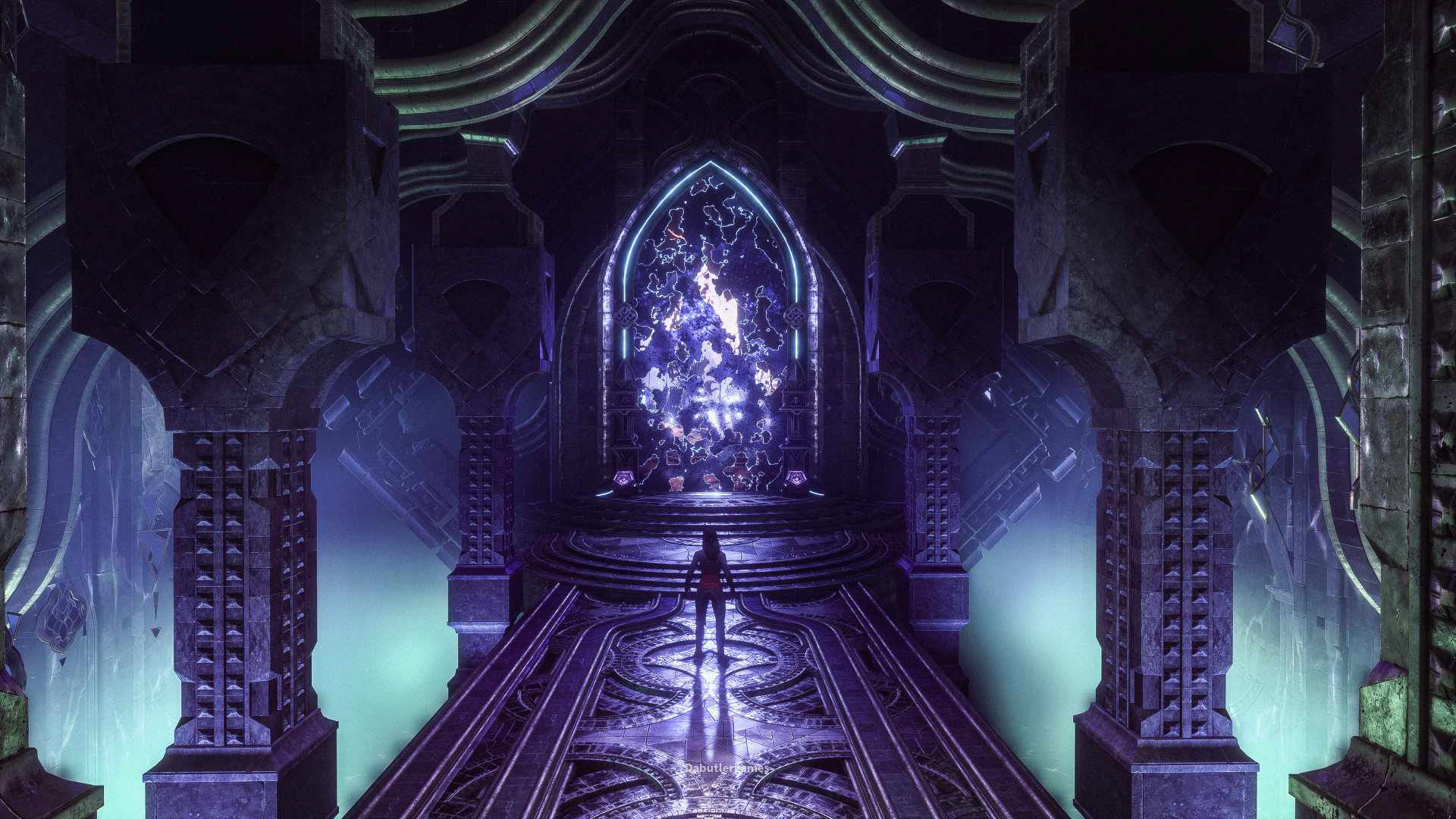
Dragon Age: The Veilguard (Bioware / EA)
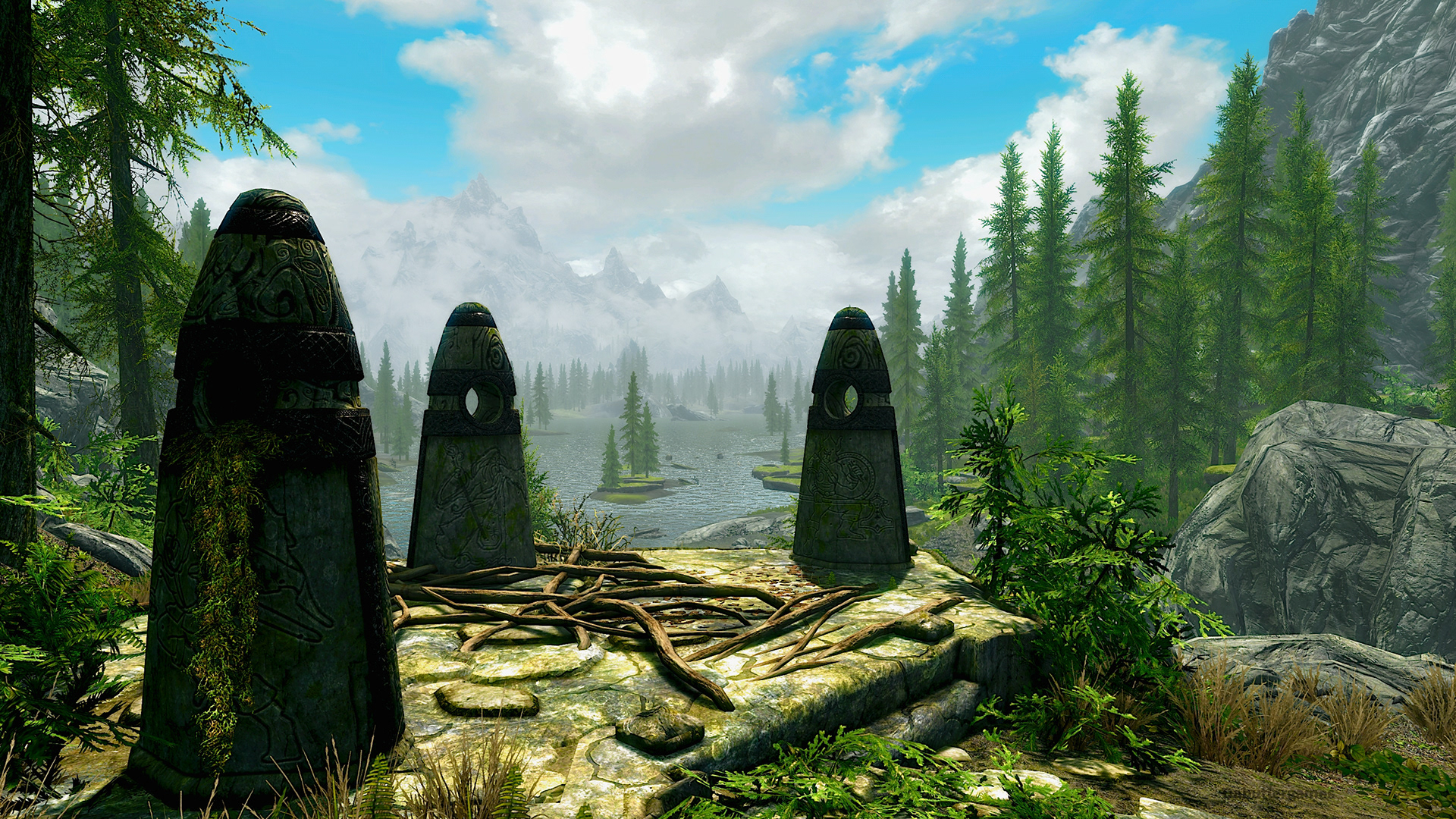
Elder Scrolls V: Skyrim
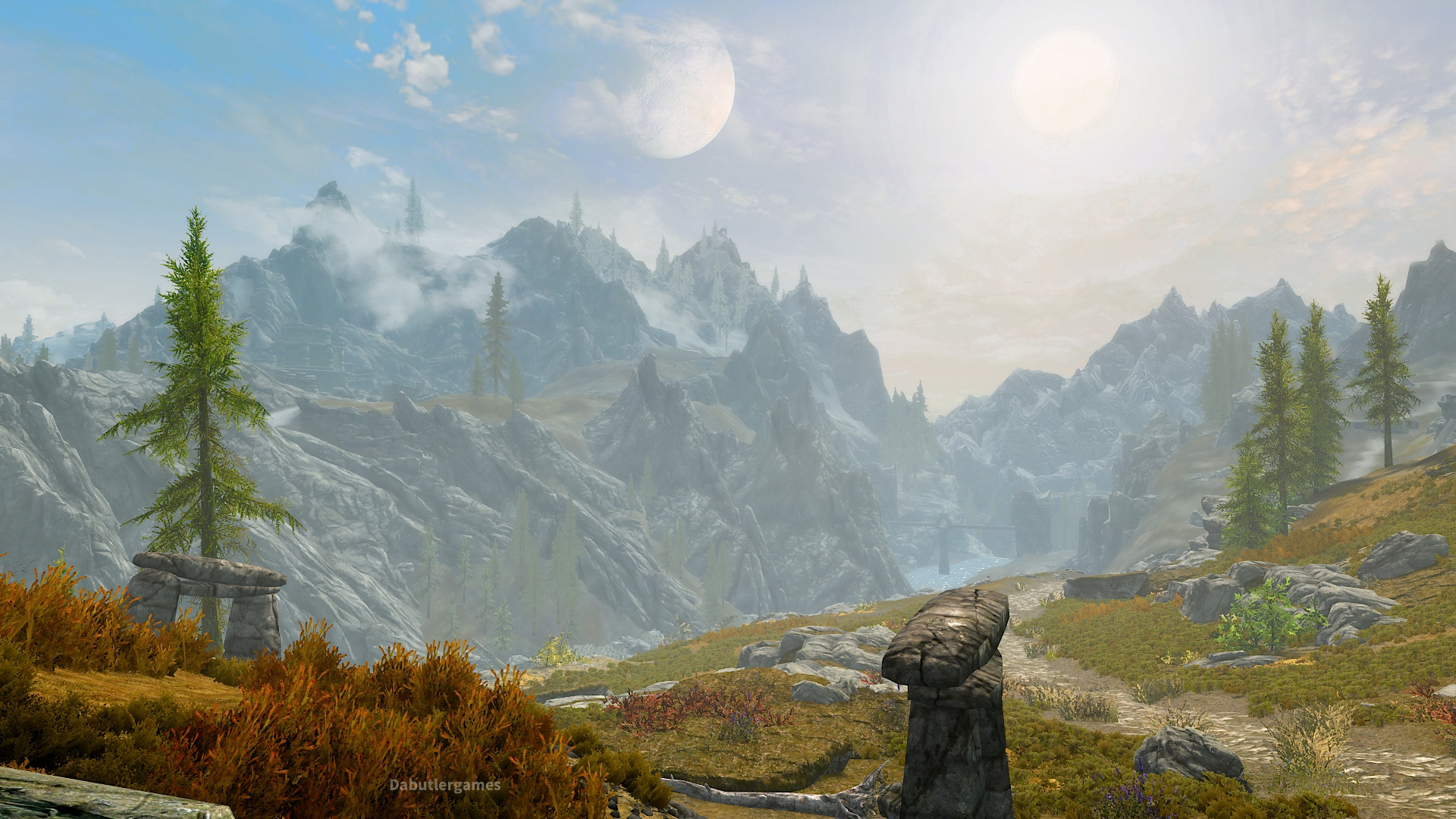
Elder Scrolls V: Skyrim
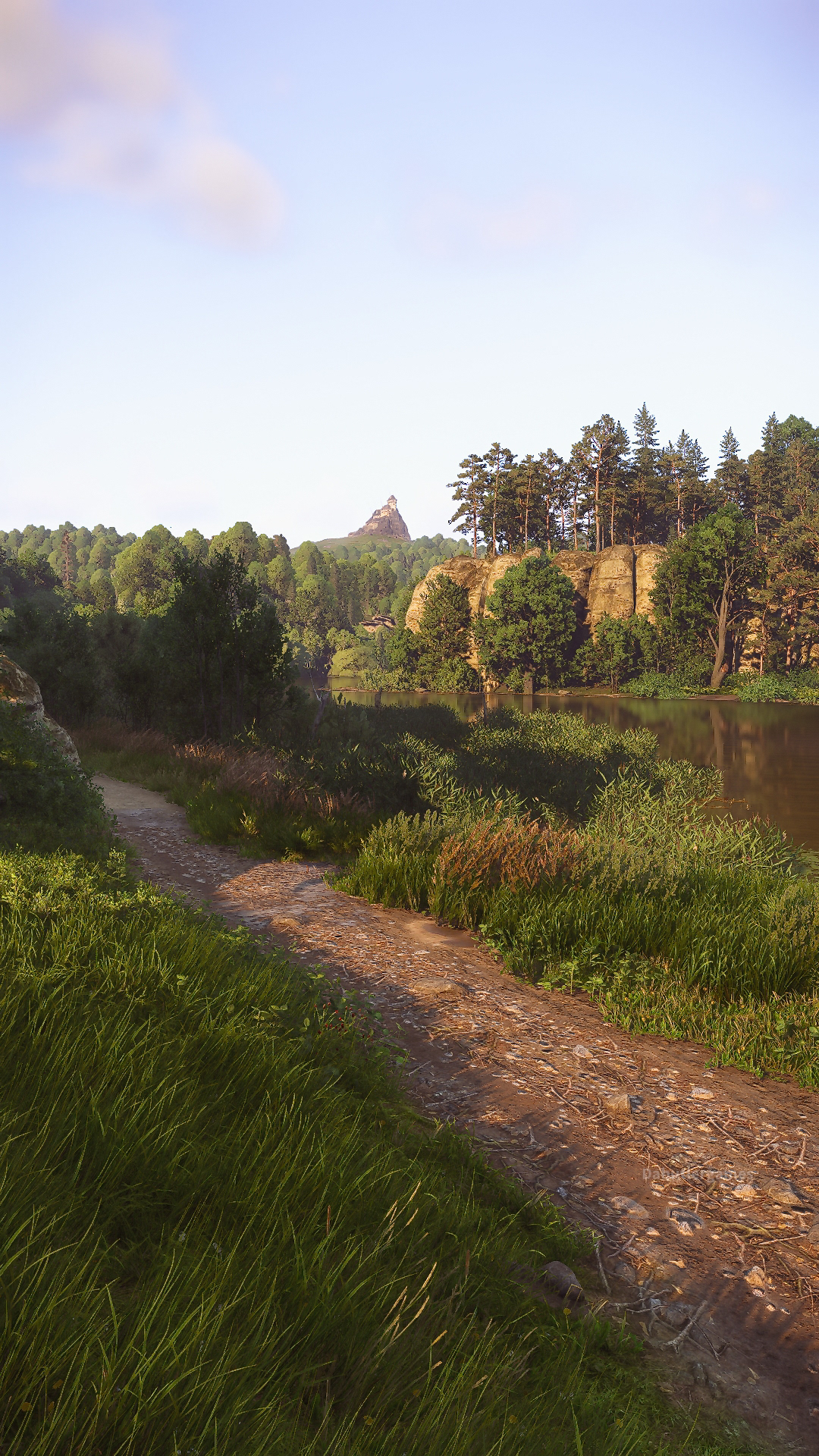
Kingdom Come II (Warhorse Studios)
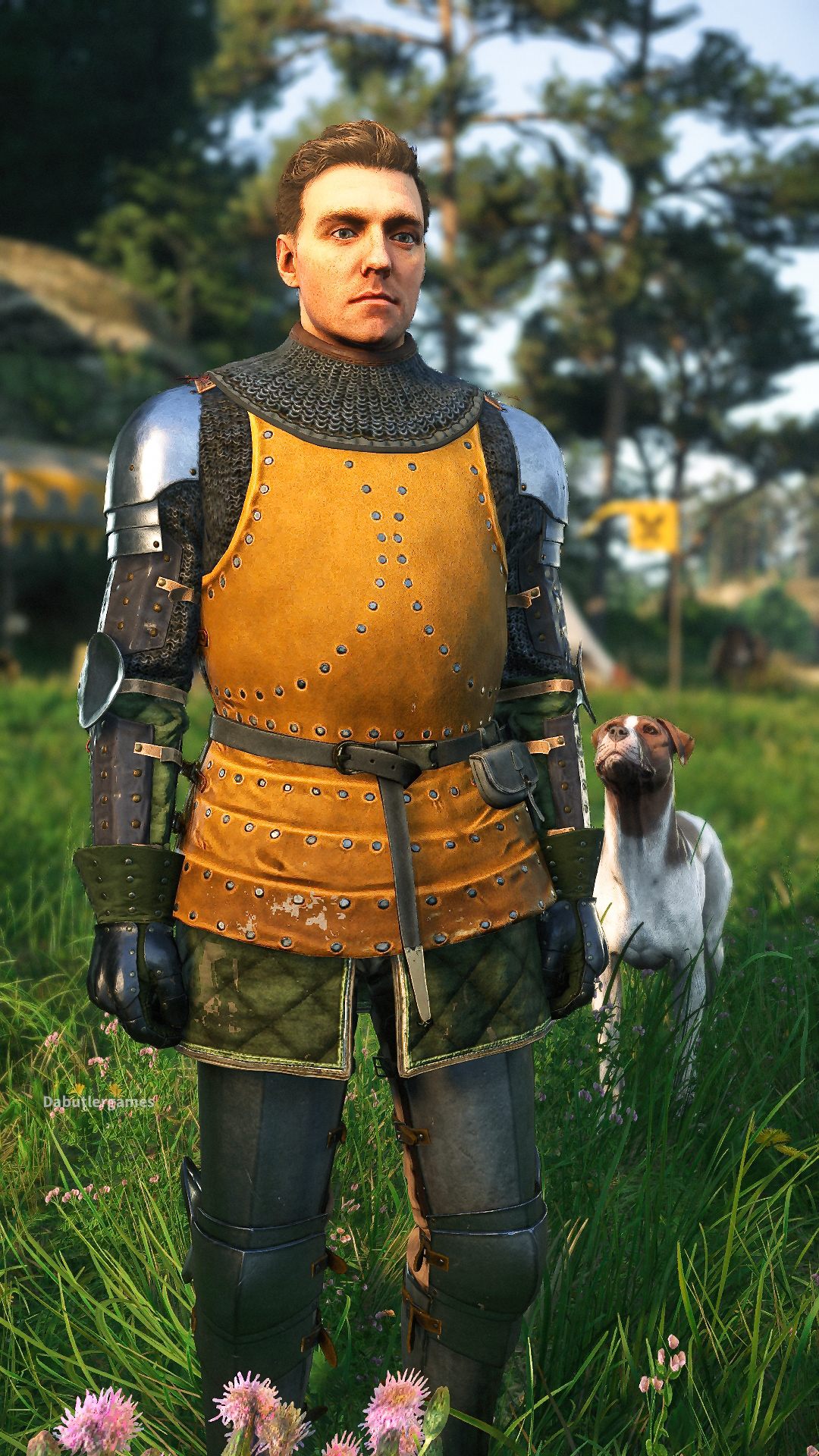
Kingdom Come II (Warhorse Studios)
The Films
Star Wars:
The hero’s journey, as told through Star Wars, is far from perfect.
The dialogue is clunky. The pacing is uneven. The plot — across trilogies — is often inconsistent.
And yet… we excuse it. We love it. Because at its best, Star Wars wasn’t just space opera — it was myth. Each trilogy stood for something. Each generation had its own reflection of the same cycle.
Anakin Skywalker’s fall shouldn’t be forgiven. But it’s part of the prophecy. Part of the cycle.
Luke begins as a dreamer — wide-eyed, naive — and ends up a symbol of hope.
Leia needs no man to tell her what to do. And Han? Han was never the chosen one. He was the scoundrel who stayed.
Obi-Wan was the loyal one. Loyal to a code he knew was flawed — and still followed it.
That was always the nuance: the Jedi were just as absolute in their own way as the Sith.
One preached peace. The other power. Both silenced emotion. Neither allowed balance.
But when Disney took the reins, the nuance was stripped.
What we got instead was nostalgia overload, recycled beats, and a form of feminism so hollow it forgot the power Leia already had without ever needing to shout it.
Disney Star Wars became a spectacle of contradiction: louder, but emptier.
The myth was still there — buried under market-tested scripts and forced legacy callbacks — but the soul was gone.
The Lord of the Rings (The Extended Trilogy):
There’s a reason I watch this trilogy twice a year.
It’s not just the story — it’s the execution.
The practical sets. The handcrafted costumes. The sweeping score. The lived-in weight of a world where every sword, cloak, and ruin feels like it has history behind it.
This wasn’t just fantasy. This was a testament to cinematic craft.
Each character strives for something greater than themselves.
Frodo doesn’t want power — he wants peace. Aragorn doesn’t chase the crown — he earns it through service. Even Gollum, twisted and tragic, is never reduced to a simple villain.
Helm’s Deep remains one of the most legendary siege battles ever put to screen.
The charge of the Rohirrim at Minas Tirith? Epic, but earned.
And Gandalf’s words still echo:
“So do all who live to see such times. But that is not for them to decide.”
It’s a story of good versus evil, yes — but in its purest, most timeless form.
Not through spectacle for its own sake, but through characters who must choose courage in the face of fear.
It wasn’t just about defeating darkness.
It was about carrying the light — even when all hope seemed lost.
Game of Thrones:
At university, I got grilled for wanting my projects to aspire to the level of Thrones.
Now? I’m not burned out by bickering egos or the limitations of short-term thinking.
Back then, I saw what television could be. And Game of Thrones proved it.
The early seasons worked because they had source material.
There was scaffolding — political intrigue, personal consequence, character arcs rooted in restraint. But by the final stretch, the show collapsed under its own weight. It forgot the long game. It forgot consequence.
Jon Snow’s resurrection?
A narrative sin. A break in the cost of death that undid the emotional logic of everything before it.
Daenerys Targaryen’s “Mad Queen” turn?
There were seeds planted — yes. But the execution was so abrupt, so emotionally chaotic, that it felt more like a clinical diagnosis than a descent.
Cluster B energy with whiplash. Not payoff — just pacing issues.
The Red Wedding though? That was earned.
I didn’t see it coming — not until Season 2 hinted that no one was safe. Robb Stark was built up, supposed honourable, made hopeful. And then he was gone. That was the point.
Tyrion’s arc had genuine nuance.
Smart, flawed, diplomatic — until the writing stopped giving him strategy and instead gave him… crypts. In a battle. With undead. His downfall wasn’t character — it was script degradation.
And the Night King?
Years of build-up. Mythology. Chilling tension.
And then… nothing. No payoff. No meaning. Just a death in the dark, wrapped in a flashy stunt.
Season 8 should never have been greenlit the way it was.
Six episodes weren’t enough. Not for a decade of build-up.
And certainly not for a show that once made every moment feel like history being written.
Copyright Disclaimer:
All third-party images (films) featured in this portfolio remain the property of their respective copyright holders. They are used strictly for the purposes of commentary, review, and educational analysis.
This portfolio is a personal creative showcase. No redistribution, resale, or commercial licensing of these images is intended or implied.
No endorsement by the original creators, studios, or rights holders is claimed.
While this site is used to promote original written works ( A Tale from the Unbound Realm, authored by Daniel Butler), these third-party images are presented solely as part of a critical reference and creative inspiration section — not as promotional materials for sale.
Conclusion:
Every great IP doesn’t reinvent the genre — it responds to it. It takes what it loves, what it questions, and reshapes it into something personal.
For a long time, I held back from creating. I thought everything had already been done. Already been said.
But what I didn’t realise was — the genre wasn’t waiting for something new. It was waiting for me.
What was missing wasn’t a fresh idea — it was my voice. My lens. My experiences.
For years, I thought I needed permission to create. I don’t anymore.
And I don’t need to be confined to websites like Royal Road just to be told I’m a writer.
This is my contribution.
This is my response.
This is A Tale from the Unbound Realm.